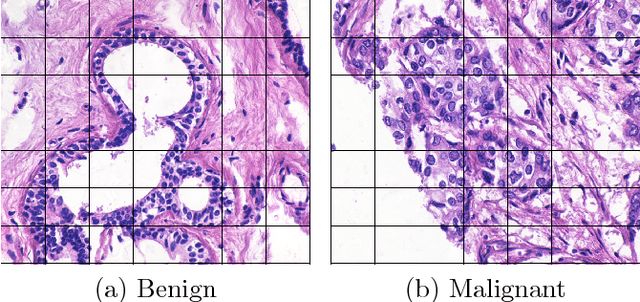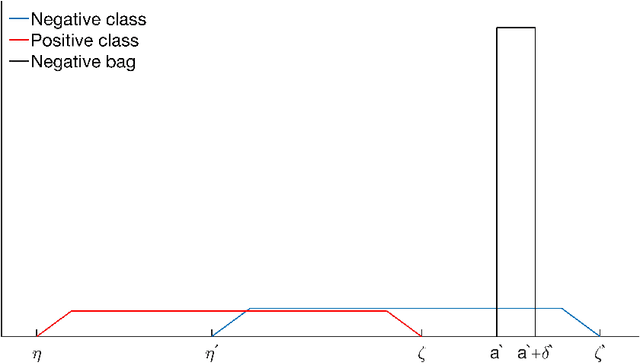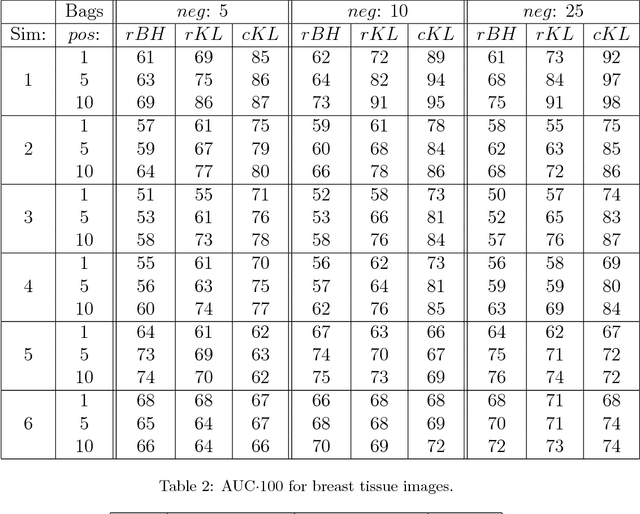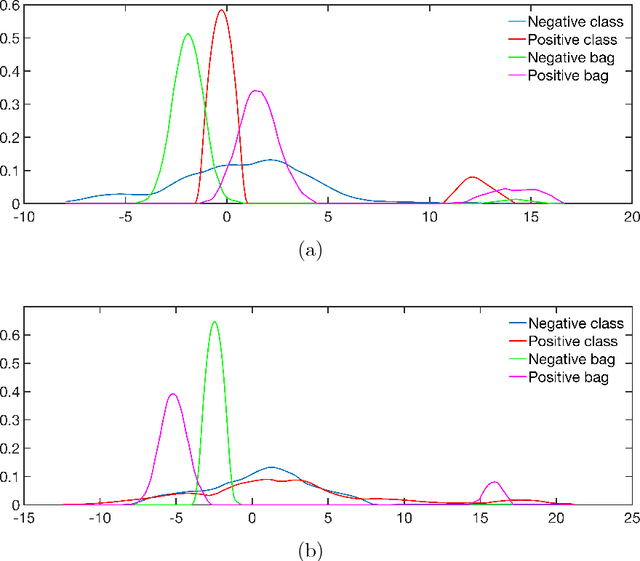A bag-to-class divergence approach to multiple-instance learning
Paper and Code
Oct 12, 2018



In multi-instance (MI) learning, each object (bag) consists of multiple feature vectors (instances), and is most commonly regarded as a set of points in a multidimensional space. A different viewpoint is that the instances are realisations of random vectors with corresponding probability distribution, and that a bag is the distribution, not the realisations. In MI classification, each bag in the training set has a class label, but the instances are unlabelled. By introducing the probability distribution space to bag-level classification problems, dissimilarities between probability distributions (divergences) can be applied. The bag-to-bag Kullback-Leibler information is asymptotically the best classifier, but the typical sparseness of MI training sets is an obstacle. We introduce bag-to-class divergence to MI learning, emphasising the hierarchical nature of the random vectors that makes bags from the same class different. We propose two properties for bag-to-class divergences, and an additional property for sparse training sets.
 Add to Chrome
Add to Chrome Add to Firefox
Add to Firefox Add to Edge
Add to Edge